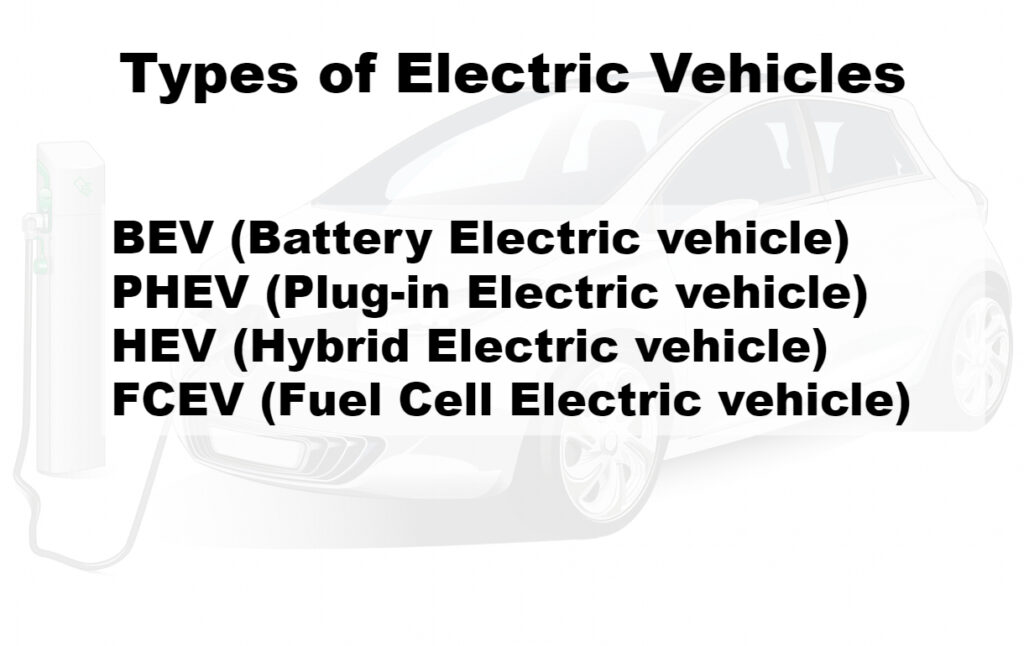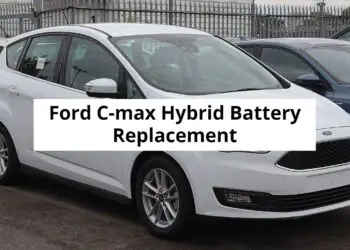We like to make classes and subclasses and sub subclasses. We differentiate to such a level that no further separation is possible. We humans take differentiation to the most basic characteristic possible. We are not satisfied until the information is completely broken down into bits and pieces which are digestible. How could we leave Electric vehicles from this addiction of ours? Humans ended up sorting out electric vehicles into various types. Before that, let us see a little information about electric vehicles.
It is said,” Necessity is the mother of invention.” Truly said, isn’t it? Whenever a man has found any need of his go unsatisfied, he quickly puts on his thinking caps. He thinks and thinks until he has found a solution. The world had grown from the wooden wheel to a car that ran on gasoline. This gasoline polluted the atmosphere spewing deadly poisonous gases all around.
Then came the invention of- Electric motor. With the electric motor, we solved the problem. Earth would again become a safe place to live. With this came the electric vehicles. And as we see electric vehicles have begun to dominate the roads. The United Kingdom plans to phase out all gasoline-run cars as early as 2030. With this leap of faith in Electric vehicles, we must know about them.
We bring you the types of Electric cars with the help of this article. So, without wasting any further of your precious time, let us begin this differentiating journey!
There is a total of four types of Electric vehicles. These vehicles are greener and cleaner. They produce less pollution than cars which run on gasoline. They recharge their batteries which the help of a technique called regenerative braking. Wherein the car recovers some of the energy converted to heat and reuses it. This in-turn helps in reducing the total wastage of energy that happens in a car.
The types of electric cars are as follows:
- BEV (Battery Electric vehicle)
- PHEV (Plug-in Electric vehicle)
- HEV (Hybrid Electric vehicle)
- FCEV (Fuel Cell Electric vehicle)
Let us all see these types in detail and learn about them.

Battery Electric vehicle (BEV)
A battery-operated electric vehicle as the name suggests is an electric vehicle. This Electric Vehicle runs on a battery-operated electric motor. Unlike traditional cars that run on Internal combustion engines, battery-operated electric vehicles do not have them. The energy required to power the car is stored in batteries inside the car itself.
We can recharge these batteries by connecting them to a power source! These batteries are the soul of an electric vehicle. They provide the energy required to run the electric motors that can be more than one in number!
Some points that you should keep in mind before buying a BEV.
- They are costlier than traditional cars. The capital required to buy a BEV is higher.
- You can save money on fuel as electricity is cheaper. Also, maintenance costs are negligible. The money saved in the long-term scenario is more than the initial extra price you have to pay.
- You have two options for charging. One is the 110 Volt household outlet or another 240 Volt outlet that is made especially for charging cars.
- The cost of installing a charging station at your house would be high. They may cost anywhere between $700 to $2000.
- Fast or DC charging is also available. These charging stations can recharge a BEV from 0-80% in under 45 minutes.
- With Fast DC charging, intercity travel in an electric car becomes way easier.
You may like to read: Benefits of Electric Vehicles (EVs)
Plug-in Hybrid Electric Vehicle (PHEV)
A PHEV is the best suitable car for current scenarios. This helps to make sure you can go a long distance without considerably polluting the planet. The electric motor runs in the beginning. When you use up the charge in the electric motor entirely, the internal combustion engine kicks in.
Here are some things you need to know about PHEV’s.
- The cost of a PHEV is higher than the price of a traditional car. But this car may save you in fuel costs if used sensibly.
- They have an advantage over the BEVs in that they can run longer distances.
- It is cheaper to maintain them.
You may like to read: The cheapest plug-in hybrid used to buy in 2020
Hybrid Electric Vehicle (HEV)
A Hybrid Electric vehicle has both components. As the name suggests the car runs on a mixture or hybrid of power sources. The car receives its energy from both types of gasoline as well as electricity. Well the only difference between a PHEV and an HEV is that the HEV cannot be plugged into the electric grid.
Things you should know before booking an HEV.
- They are relatively cheaper to operate than traditional gasoline cars.
- They share their similarities with gasoline cars more than electric cars.
Fuel-cell Electric Vehicle (FCEV)
Instead of storing electricity, the FCEV uses a novel approach. It creates energy. Yes, you read it right! The FCEV uses hydrogen and oxygen to generate electricity. The vehicle is so efficient that the only emission it produces is water vapor!
Facts you should know before booking an FCEV.
- The technology is still in the developmental stage.
- Hydrogen is highly unstable and flammable. The risk of explosion is extremely high.
- FCEV is expected to be a tsunami on the market. They are expected to break every record out there.
- The price is very high. The fuel cell is very expensive and drives the prices high up in the sky!
- The infrastructure required to expand this facility is going to be a challenge. Only two charging stations are operational across the world. They both lie in Canada.
With this, we have come to the end of the article. We hope we could touch all the bases with this article. We tried to throw light on the types of electric cars. We hope you understood the different types of electric vehicles and also their features. We will be back with a new informative article very soon. Until then, Drive Safely!



